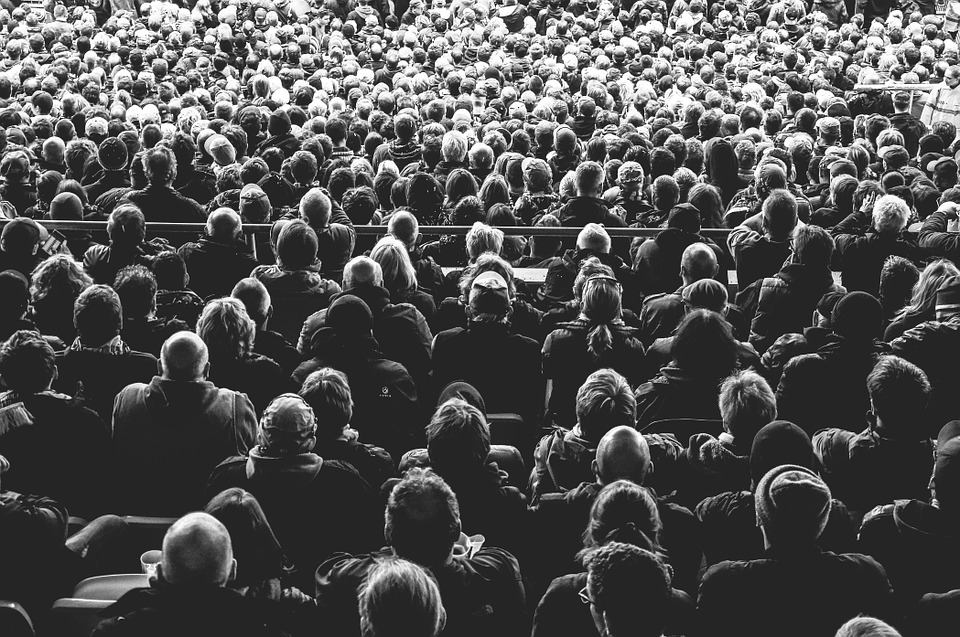 Arguably, the dominant cultural issue of our time is the changes in how people are finding and getting culture. In response, business models supporting culture and the kinds of culture being made are also changing. It also underpins debates about diversity, engagement and power.
Arguably, the dominant cultural issue of our time is the changes in how people are finding and getting culture. In response, business models supporting culture and the kinds of culture being made are also changing. It also underpins debates about diversity, engagement and power.
Some broad themes this week:
1. Where the audience is going
- Record Profits As Concert Business Booms The pop concert and festival business is hugely popular, and growing. Concert promoter Live Nation reported revenue of $7.6 billion in 2015, up 11 percent from the previous year.
- Are We So Addicted To Our TVs That The Arts Can’t Compete? TV has gotten radically better. And its ubiquity means that it is easy to consume. The arts are harder, messier, less predictable. So…
- Publishers (And Critics) Still Draw A Line Between Literary And Commercial Fiction But does the audience? Does anyone still care about the distinction? And if so, where is that line?
- When 80% Of Public Museum Art Is Locked Away, How Is It Public? So a website is trying to digitize images of every piece of art owned by the public. Not a substitute, sure, but perhaps it changes notions of what it means to be publicly owned.
2. How we’re measuring the audience (and how they engage)
- A Last-Minute Ticket App Hits Broadway, But Theatres Aren’t Happy The mobile app sells discounted and full-price last-minute tickets. Is it a threat to the traditional business of selling full price tickets?
- TV Networks Are Obsessed With Ratings. Netflix Isn’t. So why? Netflix simply doesn’t care about ratings—at least not in the way other television providers do.
-
What I Learned From My Week On Twitter “My tweets got 102,700 impressions over the week, averaging 14,700 per day. However, the engagement rate was only 1.6%, which is pretty typical for the site. On Twitter, everyone has a megaphone, but few take incoming calls.” -
No Money In Pop? Composer Writes Classical Music To Subsidize Her Pop Songs “There’s this assumption that there’s money in pop. No – my contemporary art music funds my burgeoning middle-aged pop sensation career! … It’s made me realise how much support and infrastructure there is for classical music.” - Are Our Criteria For Judging The Success Of Musicals Wrong? “Where once a musical running one or two years would have been a great success, that achievement has now been devalued.”
3. How we’re rethinking our relationships with culture
- Can MOOCs Get You Closer To Your Museum? Whether they function as a resource for art lovers or provide an introduction for an audience that can’t attend — or simply hasn’t — the museum in person, these courses are increasing access in inventive ways.
- Who Owns The Past? Our Museums Seem To Be Confused We’re risking “transforming our great institutions into places where understanding the past is conditioned by present-day political and therapeutic criteria.”
- Branford Marsalis Talks About The Differences Between Classical And Jazz “Classical music makes me a much better saxophonist than jazz does. Because for saxophone technique, guys end up playing fast stuff. In classical music, you just have to develop a technique to execute melodies and ideas that are beyond the linear ways that we tend to think about music.”
- China: No More Weird Architecture! In recent years some of the most imaginative (and yes, weird) buildings have been erected in China. But now a directive issued on Sunday says no architecture that is “oversized, xenocentric, weird” or “devoid of cultural tradition” should be built.
- Why Today’s Teens Have Stopped Reading Books “When they become twelve or thirteen, kids often stop reading seriously. The boys veer off into sports or computer games, the girls into friendship in all its wrenching mysteries and satisfactions of favor and exclusion.”

Leave a Reply